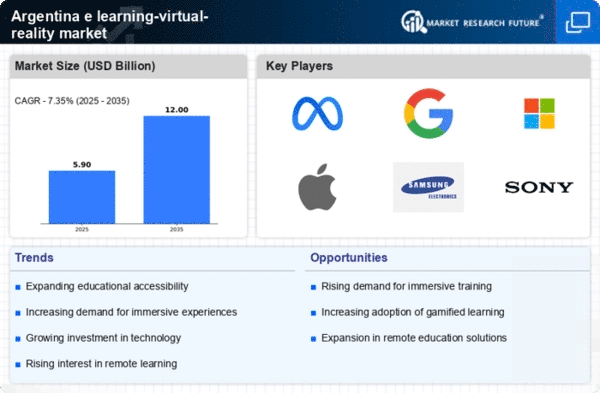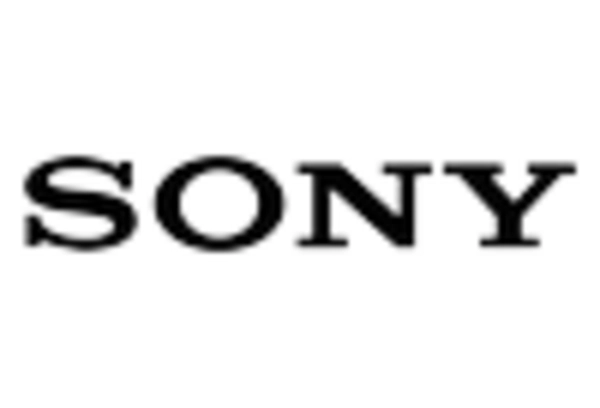Increased Focus on Skills Development
The e learning-virtual-reality market in Argentina is witnessing a heightened emphasis on skills development, particularly in response to the evolving job market. Employers are increasingly seeking candidates with practical skills that can be effectively taught through immersive learning experiences. As a result, educational institutions are adopting virtual reality technologies to simulate real-world scenarios, enabling students to gain hands-on experience in a safe environment. Data indicates that 70% of employers prefer candidates who have undergone skills training through innovative methods such as VR. This trend is likely to drive growth in the e learning-virtual-reality market as institutions strive to equip students with the competencies needed for future employment.
Expansion of Private Sector Investment
The e learning-virtual-reality market in Argentina is benefiting from a surge in private sector investment, which is crucial for the development of innovative educational technologies. Venture capital firms and tech companies are increasingly recognizing the potential of virtual reality in transforming education. Recent statistics reveal that investment in EdTech startups has increased by 40% over the last year, with a significant portion directed towards VR solutions. This influx of capital is expected to accelerate the development of cutting-edge applications and platforms that enhance the learning experience. As private sector involvement grows, the e learning-virtual-reality market is likely to evolve, offering more diverse and effective educational tools.
Growing Demand for Interactive Learning
The e learning-virtual-reality market in Argentina is experiencing a notable surge in demand for interactive learning experiences. Educational institutions are increasingly recognizing the value of immersive technologies in enhancing student engagement and retention. According to recent data, approximately 65% of educators in Argentina believe that virtual reality can significantly improve learning outcomes. This shift towards interactive learning is driven by the need to cater to diverse learning styles and preferences, making education more accessible and effective. As a result, the e learning-virtual-reality market is likely to expand, with institutions investing in VR tools and platforms to create dynamic learning environments that foster collaboration and creativity.
Government Initiatives Supporting EdTech
In Argentina, government initiatives aimed at promoting educational technology are playing a crucial role in the growth of the e learning-virtual-reality market. The government has allocated substantial funding to enhance digital infrastructure in schools and universities, which is expected to increase access to advanced learning tools. For instance, recent reports indicate that public spending on educational technology has risen by 20% over the past year. These initiatives not only facilitate the integration of virtual reality into curricula but also encourage partnerships between educational institutions and tech companies. Consequently, the e learning-virtual-reality market is poised for growth as more institutions adopt VR solutions to enrich the educational experience.
Rising Popularity of Gamification in Education
Gamification is emerging as a powerful trend within the e learning-virtual-reality market in Argentina. By incorporating game-like elements into educational content, institutions are able to enhance motivation and engagement among students. Research suggests that gamified learning experiences can lead to a 30% increase in student participation. This trend is particularly appealing to younger learners who are accustomed to interactive digital environments. As educational institutions seek to leverage gamification, the demand for virtual reality applications that facilitate this approach is likely to rise. This shift may lead to a more vibrant e learning-virtual-reality market, as developers create innovative solutions that blend education with entertainment.
















